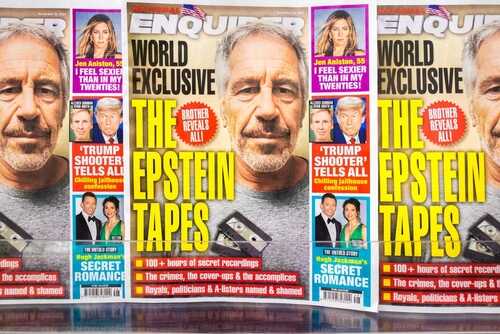(LibertySociety.com) – A federal judge just told the Department of Justice that grand jury secrecy still means something, even in the Epstein-Maxwell saga.
Story Snapshot
- Judge Paul Engelmayer denied the DOJ’s bid to unseal Ghislaine Maxwell grand jury materials, citing no “special circumstances.”
- The court said unsealing would add no “meaningful new information” beyond Maxwell’s 2021 public trial record.
- A 31-page order reaffirms Rule 6(e) secrecy despite intense public curiosity and media pressure.
- The decision narrows future paths to pry open grand jury records in high-profile cases.
A Denial That Reasserts the Old Rules
Judge Paul Engelmayer rejected the Department of Justice’s motion to unseal grand jury transcripts and exhibits from the Ghislaine Maxwell case, ruling the government failed to establish the “special circumstances” needed to breach grand jury secrecy. The 31-page order emphasized that the public already learned the essential facts through the 2021 trial, rendering any additional disclosure marginal at best. The decision leaves the grand jury record sealed and clarifies the burden for any future unsealing attempts in this case.
The court’s language did more than recite doctrine. By labeling the promise of new revelations “demonstrably false,” the order dismissed the idea that curiosity or controversy can substitute for legal necessity. That stance lines up with the conservative reading of Rule 6(e): secrecy preserves the integrity of investigations, shields witnesses, and prevents trial by leak. Transparency has a place, but not at the expense of institutions that depend on confidentiality to function.
Why The Trial Record Was Enough
Prosecutors argued public interest and investigative value supported unsealing. The judge countered that victim testimony, witness accounts, and critical evidence already entered the public domain during Maxwell’s 2021 trial. With Maxwell convicted and serving a 20-year sentence, the court found little incremental public value in exposing grand jury material that would retread familiar ground. That calculus matters: courts weigh novelty and necessity, not headlines, when considering exceptions to secrecy.
The ruling also reflects a broader judicial pattern: courts routinely deny broad, non-particularized requests to open grand jury files after a verdict. Without a targeted, concrete need, such as a specific challenge that cannot be resolved without grand jury context, judges are reluctant to create precedents that would chill witness candor or politicize charging decisions. This decision reinforces that line: if the trial told the story, the grand jury stays silent.
The Stakes For Future Transparency Fights
The Maxwell order will influence the next wave of “unseal it all” motions in high-visibility prosecutions. Advocates will need more than generalized claims of historical significance or public interest. They will need a particularized need that the trial record cannot satisfy. That threshold respects both due process and common-sense limits on post hoc re-litigation via leaks. It also channels debate back to public evidence: transcripts, exhibits, and appellate filings that already withstand scrutiny.
For survivors and the public, the practical effect is continuity: analysis remains anchored in the trial’s open record rather than the grand jury’s closed one. For DOJ and the defense bar, the order clarifies that S.D.N.Y. will guard grand jury secrecy unless a motion pinpoints a unique gap the sealed materials alone can fill. Policy arguments about transparency will persist, but the doctrine here is stable, narrow, and resistant to spectacle-driven exceptions.
Copyright 2025, LibertySociety.com .
Click this link for the original source of this article.
Author: Editor
This content is courtesy of, and owned and copyrighted by, https://libertysociety.com and its author. This content is made available by use of the public RSS feed offered by the host site and is used for educational purposes only. If you are the author or represent the host site and would like this content removed now and in the future, please contact USSANews.com using the email address in the Contact page found in the website menu.








